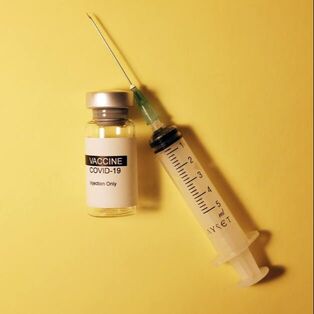 | Delayed periods and heavier periods were reported to the MHRA by over 4,000 women after having the Covid jab (Sunday Times). A later than usual period usually means ovulation has been delayed, or even skipped, which is a normal response to all kinds of stress, illness and events - including vaccination. This is why the NHS website recommends a double-check, or sympto-thermal, approach to fertility awareness as contraception. |
Double-check means you don't just rely on a period tracker, or even your waking temperature, to work out when you're fertile. You also keep an eye out for changes in cervical fluid, and maybe use ovulation tests, or check your cervix (a vintage but helpful option).
That might sound intimidating but there's a limit to how much information you need, and a big chunk of each cycle when you don't need to gather any information at all!
Gathering enough data, knowing how to interpret it, and being prepared to use condoms or other precautions for as long as you need to, at least 11 days each cycle, is how you reach the magical over 99% effectiveness rate.
Of course you might be completely unaffected by the vaccine, some of us have bodies that chug on regardless, but it's best to be prepared.
If you have any adverse effects from the vaccine, or any other medication or medical device, please report them to the MHRA using the Yellow Card system. This data is what informed the Sunday Times report, it’s important stuff.
In case you're wondering, yes I do think you and your partner (if you have one) should have the vaccine. Any side effects are going to be better than getting Covid itself, even if you're pregnant, planning a pregnancy or breastfeeding.
Disrupted cycles should be a temporary thing, not something that will have a long-term impact on your fertility.
That said, I understand anyone being wary. As Caroline Criado Perez highlights, women are often ignored in research. You can sign up to her Invisible Women newsletter here.
That might sound intimidating but there's a limit to how much information you need, and a big chunk of each cycle when you don't need to gather any information at all!
Gathering enough data, knowing how to interpret it, and being prepared to use condoms or other precautions for as long as you need to, at least 11 days each cycle, is how you reach the magical over 99% effectiveness rate.
Of course you might be completely unaffected by the vaccine, some of us have bodies that chug on regardless, but it's best to be prepared.
If you have any adverse effects from the vaccine, or any other medication or medical device, please report them to the MHRA using the Yellow Card system. This data is what informed the Sunday Times report, it’s important stuff.
In case you're wondering, yes I do think you and your partner (if you have one) should have the vaccine. Any side effects are going to be better than getting Covid itself, even if you're pregnant, planning a pregnancy or breastfeeding.
Disrupted cycles should be a temporary thing, not something that will have a long-term impact on your fertility.
That said, I understand anyone being wary. As Caroline Criado Perez highlights, women are often ignored in research. You can sign up to her Invisible Women newsletter here.